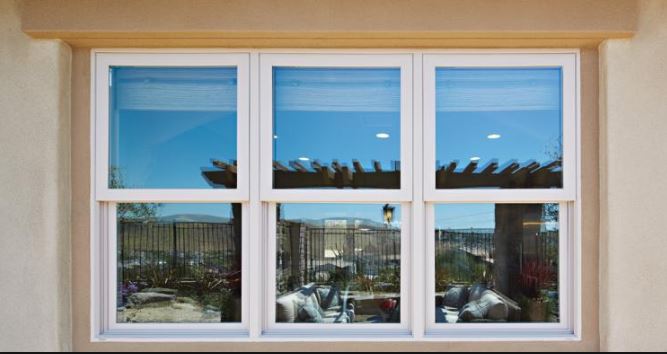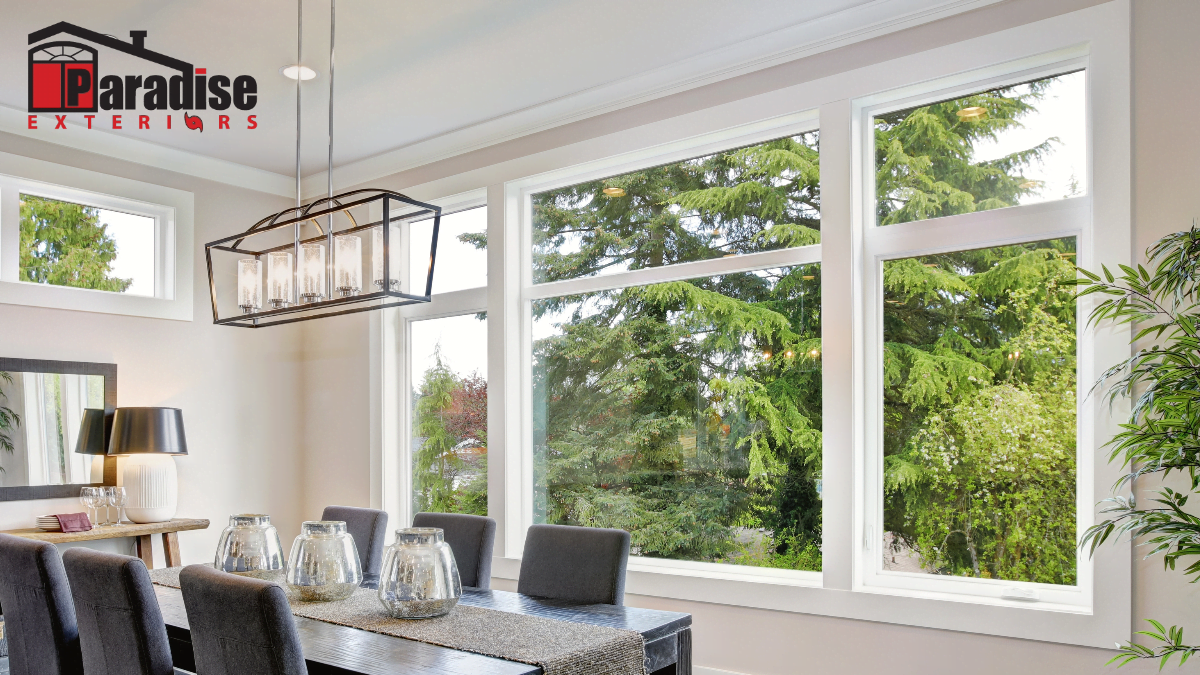Woodlands Window Replacement Solutions for Elegant Homes
Wiki Article
Upgrade Your Home With Energy-Efficient Window Replacements
In the realm of home enhancement, the choice to update to energy-efficient window replacements can dramatically affect both the performance and looks of a residence. Past the surface area level of simple visual appeals, energy-efficient home windows use a wide range of benefits that go beyond mere aesthetic charm.Benefits of Energy-Efficient Windows

The setup of energy-efficient windows supplies substantial cost savings on utility expenses while boosting ecological sustainability. In addition, energy-efficient home windows can aid manage wetness levels within the home, lowering the threat of mold and mildew and mold growth.
Past the economic benefits, energy-efficient home windows add to ecological sustainability by reducing carbon exhausts connected with power production. By reducing power use, these home windows help reduce the ecological effect of lights, cooling, and heating domestic spaces. This decrease in power intake plays a vital function in combating climate modification and advertising a greener future for generations to find. Overall, purchasing energy-efficient home windows not just boosts the convenience and effectiveness of a home but additionally aligns with environmentally conscious techniques.
Types of Energy-Efficient Glass
Numerous sophisticated sorts of energy-efficient glass deal distinct residential properties that deal with different requirements and preferences in improving the sustainability and performance of structures. Low-emissivity (Low-E) glass is a preferred alternative designed to minimize the amount of ultraviolet and infrared light that can pass via the glass, therefore minimizing heat transfer. This kind of glass helps maintain a consistent interior temperature, minimizing the demand for heating or cooling systems, and eventually reducing energy costs. One more cutting-edge alternative is spectrally selective glass, which permits noticeable light to go through while blocking particular kinds of infrared radiation. This helps in keeping a comfortable indoor setting while lessening heat gain. Triple-pane glass, including three layers of glass with insulating gas between them, gives enhanced thermal insulation, making it very energy-efficient. Furthermore, self-cleaning glass with an unique layer that breaks down and loosens dirt when subjected to sunshine can lower upkeep needs and keep home windows looking tidy. Each kind of energy-efficient glass offers distinctive advantages, enabling homeowners to select the most appropriate option based upon their details requirements and goals.Elements to Think About When Picking
When considering energy-efficient home window replacements, it is vital to meticulously analyze specific factors that line up with your sustainability objectives and desired power financial savings. One crucial element to consider is the home window's power efficiency rankings, such as the U-factor and Solar Warmth Gain Coefficient (SHGC) The U-factor measures how well the window shields, with lower numbers suggesting better insulation, while the SHGC suggests the window's ability to block warm from sunshine. Additionally, the window structure product plays a substantial duty in power effectiveness. Materials like fiberglass, vinyl, or timber with thermal breaks are superb options for minimizing heat transfer. An additional crucial consideration is the window design and positioning concerning sunshine direct exposure. Picking the right window design and tactically placing them can make best use of all-natural light while lessening warmth gain or loss. Lastly, installation high quality is vital to making sure the home windows do as meant. Proper installment helps protect against air leak, ensuring ideal energy effectiveness. By thoroughly assessing these factors, you can choose energy-efficient windows that improve convenience, decrease power expenses, and benefit the atmosphere.Setup and Maintenance Tips

visit site Regular upkeep is vital to maintaining the performance of your energy-efficient windows. Examine the windows occasionally for any signs of sealer, wear, or damage wear and tear. Tidy the frameworks, tracks, and glass frequently using light soap and water to get rid of dirt and crud that can impact efficiency. Examine the weather-stripping and seals for any type of splits or voids and change them if needed to maintain the home windows' power efficiency.
In addition, lubricate relocating components such as joints and locks to guarantee smooth operation. By complying with these installation and upkeep tips, you can improve the energy effectiveness of your home and lengthen the lifespan of your energy-efficient home windows.
Cost-Benefit Analysis of Upgrading

Energy-efficient windows are created to lessen warm transfer, reducing the demand for home heating and cooling systems to burn the midnight oil. This can cause considerable cost savings on energy costs, especially in regions with severe temperatures. In addition, energy-efficient home windows can boost the general worth of your home, making it a lot more appealing to possible purchasers if you decide to market in the future.
When determining the cost-benefit evaluation, consider the potential cost savings on power costs, any readily available incentives or rebates, and the life-span of the home windows. While the first price may be greater, the long-term financial emergency window repair near me savings and benefits of energy-efficient home windows make them a smart financial investment for house owners wanting to boost their home's power effectiveness and worth.

Final Thought
In verdict, upgrading to energy-efficient home window substitutes supplies various advantages such as reduced energy usage, raised comfort, and expense financial savings. By choosing the ideal kind of energy-efficient glass and thinking about variables like frame material and setup, home owners find more info can maximize the performance of their windows. Regular upkeep and proper installation are vital for lasting efficiency. On the whole, the cost-benefit evaluation of upgrading to energy-efficient home windows shows that the first financial investment can result in significant savings in the long run.When considering energy-efficient window substitutes, it is important to thoroughly evaluate particular factors that align with your sustainability purposes and wanted energy savings. The U-factor measures just how well the home window protects, with lower numbers showing better insulation, while the SHGC indicates the home window's capability to block warmth from sunlight. By thoroughly evaluating these variables, you can pick energy-efficient home windows that improve convenience, minimize energy prices, and benefit the environment.
While energy-efficient home windows may have a higher ahead of time cost compared to typical windows, the long-term benefits often surpass the initial financial investment.In final thought, upgrading to energy-efficient home window replacements uses various advantages such as decreased energy intake, enhanced convenience, and expense financial savings.
Report this wiki page